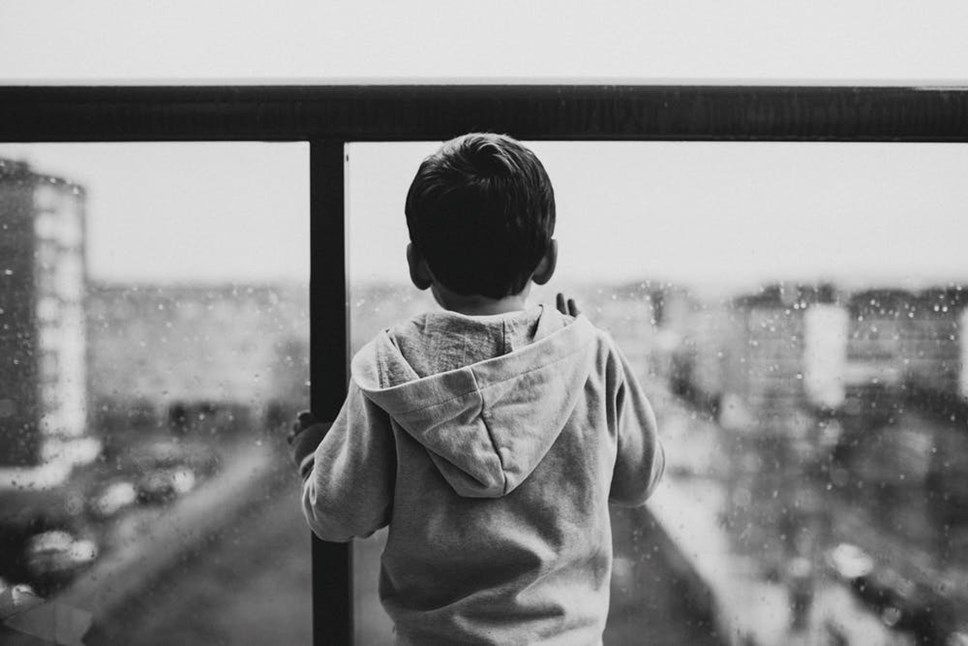
Ministers call on neighbours and communities to act as eyes and ears for child and adult victims of abuse
Gweinidogion yn galw ar gymdogion a chymunedau i gadw eu llygaid a'u clustiau ar agor am blant ac oedolion sy'n cael eu cam-drin
Lockdown is making life more difficult for victims of abuse, both adult and child. Isolation can allow abusers to exert more power and control over their victims, whether that involves violence, neglect or emotional abuse.
Specialist services are available to help victims of harm, abuse or neglect during the Covid-19 pandemic, with children and parents who are at risk prioritised for services.
Deputy Minister and Chief Whip, Jane Hutt, said:
“We know that enforced isolation can be used as a tool for coercive control, or as an excuse to inflict violence on victims. Lockdown also makes it more difficult to find someone to turn to for help.
“Under lockdown, the normal places of escape – school, friends’ houses, youth centres, colleges and universities, workplaces – are not available. It can be difficult for victims to get help, but specialist services are open, and ready to offer support.
“I want to reassure victims that you are not alone. Help is available, and I would encourage you to reach out, if you can. Specialist services are open and ready to support you.
“I also want to call on friends, neighbours, postal workers, delivery drivers and communities to act as the eyes and ears for victims of abuse who need help, but can’t get in contact because they are under the watchful eyes of their abuser.
“It is very important, for your safety and the victim’s, that you don’t intervene yourself, but there is lots of support available, and you can help by calling 999 in an emergency, Live Fear Free (contact details below) or the specialist services listed.
“Signs that abuse is happening behind closed doors could include repeated shouting, sounds of things being hit, smashed or broken, and continuing crying or pleas to stop. Victims might have cuts or bruises, look confused or dishevelled, or be anxious or withdrawn.
“If you suspect that someone, whether child or adult, is suffering abuse, harm, neglect, harassment, control, physical violence or emotional abuse at the hands of a family member or partner, please call the police if it’s an emergency, or seek support on Welsh Government’s ‘reporting suspected abuse, harm or neglect site’ here. You could be saving a life.”
Deputy Minister for Health and Social Services, Julie Morgan, said:
“I want to send a clear message; Wales’ social services, specialist teams and third sector organisations are still open and are working hard to support anyone who needs their help.
“We are asking everyone to look out for any signs that children or adults in their community may be at risk of harm, abuse or neglect. Please report any concerns you have - you could make a real difference to someone’s life.
“Our services are here to help you, your family and community too - don’t be afraid to ask for support.”
Notes to editors
For support, please contact:
- Welsh Government’s ‘Reporting suspected abuse, harm or neglect site’ here
- Live Fear Free 24 hours a day, 7 days a week – call free on 0808 8010 800 any time, if you can do it safely. You can also text 0786 007 7333, email info@livefearfreehelpline.wales or live chat - https://gov.wales/live-fear-free/contact-live-fear-free.
Support is available through webchat, text & phone via @LiveFearFree
- Police – 999 in an emergency
- Silent 999: If you can’t talk in safety, but you need help immediately, police forces across Wales will respond to a silent 999 call – dial 999, and when the operator answers, dial 55 to indicate that you can’t talk, but need help.
- The NSPCC can be contacted by phone at: 0808 800 5000 or at nspcc.org.uk.
- Meic is a confidential, anonymous, and free bilingual helpline service for children and young people up to the age of 25 in Wales and you can still access this vital information, useful advice and support need during this period of lock down and are open 8am - midnight, 7 days a week, by phone 080880 25456, SMS text 84001 and instant messaging https://www.meiccymru.org
- Childline is a free, private and confidential service to anyone under 19 in the UK where they can talk about anything. https://www.childline.org.uk/ where support is also delivered via webpages and message boards. The Childline number is: 0800 1111.
You can speak to a real person and get the support you need, or chat about any concerns you may be having.
- The Safer Wales Dyn project provides support to Heterosexual, Gay, Bisexual and Trans men who are experiencing Domestic abuse from a partner.
http://www.dynwales.org/contact-dyn-project/?contentID=577 Tel: 0808 801 0321
- The Bawso helpline offers support to BAME victims and survivors affected by domestic abuse and all forms of violence against women.
https://bawso.org.uk/contact-us/ Tel: 08007318147
- The Hourglass Cymru confidential helpline 0808 8088141 provides information and support to anyone concerned about harm, abuse, neglect or exploitation of an older person, whether that abuse is perpetrated by family members, partners, neighbours, paid professionals or strangers
- Online e-learning course to help recognise the signs of domestic abuse - https://learning2.wales.nhs.uk/course/view.php?id=71
- Welsh Women’s Aid Bystander toolkit - https://www.welshwomensaid.org.uk/campaigning/covid-19-bystander-toolkit/
This is not love – this is control
Examples of controlling behaviour include:
- Harassment or control via electronic means eg constant texting, demanding passwords, checking up on who you are talking to
- Physical abuse or violence
- Emotional abuse eg constant criticism, insults, constantly making fun of your appearance or actions, refusal to allow you to speak or make decisions for yourself
- Threats of violence
- Threats to tell other people private information about you, or to show private pictures of you
